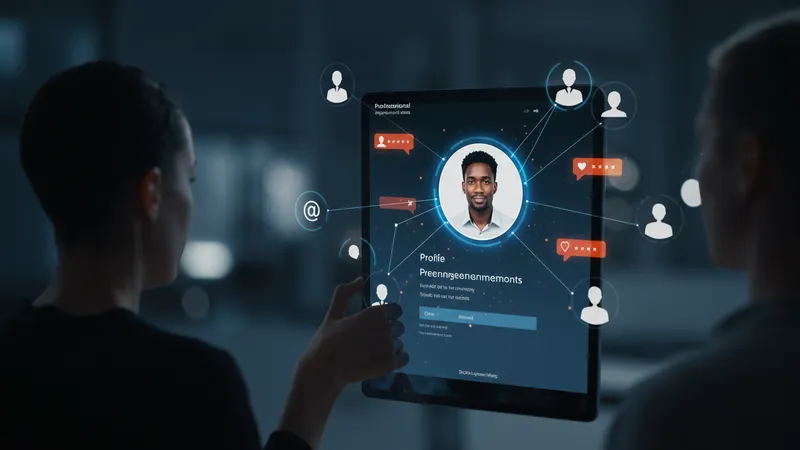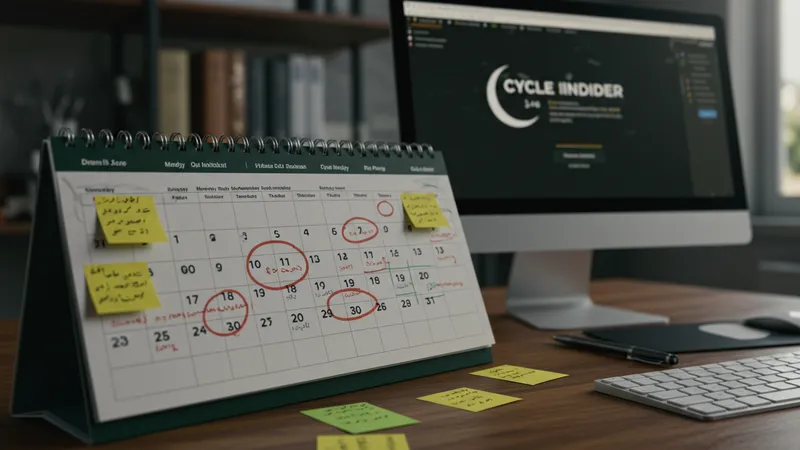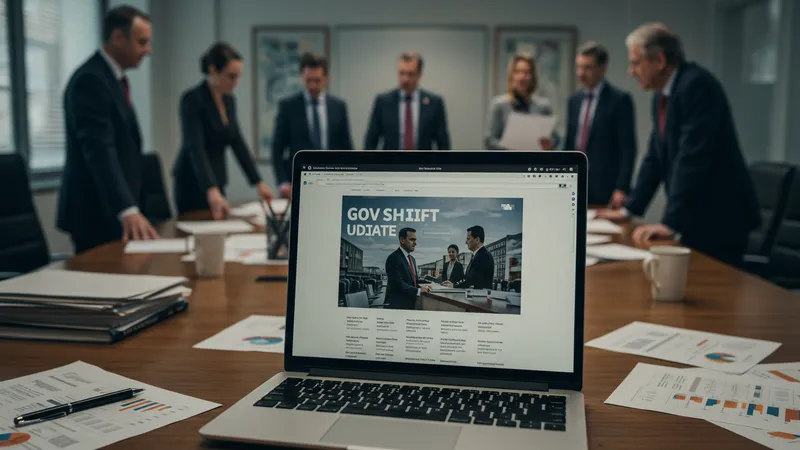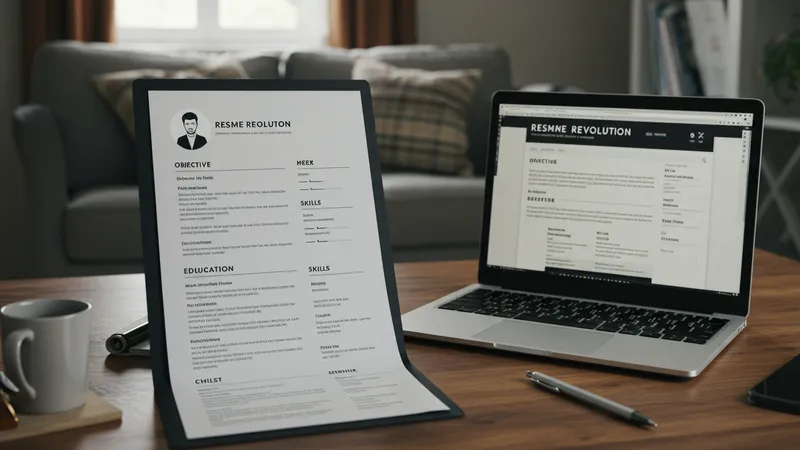Did you know that Pakistan's government sector is becoming one of the most desirable employment landscapes in South Asia? The demand is booming, and competition is fierce, but there's a secret method that can triple your chances of landing a job.
With economic uncertainties and shifting job prospects globally, securing a stable government position in Pakistan is more important than ever. It's about financial security, career growth, and societal influence. But how do you tap into this well of opportunity effectively?

It's shocking to discover that more than 75% of applicants for government jobs in Pakistan never even get their applications reviewed. Why? The biggest barrier isn't just the technical qualifications or the age limit; it's a lack of strategic approach and understanding of the recruitment process nuances. But that’s not even the wildest part...
Many qualified candidates overlook the importance of continuous skill enhancement, assuming their college degrees suffice. Yet, specialized training and up-to-date certifications in fields like IT or project management can set you apart. Imagine missing out on a lucrative position just because you didn’t redo a short online course! But that’s not even the wildest part…
So, what is this secret method that can significantly improve your odds? It's not what you think. What happens next shocked even the experts…
First, let’s uncover the bureaucratic maze that is the Pakistani government job application process. It's essential to grasp how the Public Service Commission operates. Their rigorous selection procedures mean that out-of-the-box thinkers often outshine those who stick to conventional methods. It’s like unraveling a puzzle where each piece reveals a new angle to explore.

Many applicants are unaware that personal networking can be the key. Employees already inside the system can provide insider tips on the unspoken rules of success. Attend public seminars or online forums where government officials discuss opportunities and challenges openly.
The competition doesn’t only involve direct skills or experience—the art of leveraging contacts also matters. Consider forming study groups or joining alumni networks that are known to have successful placements in the civil sector. People who think beyond traditional CV submission are often first in line for interviews.
But there’s one more twist. The digital presence of a candidate is increasingly scrutinized. Social media profiles have become an unspoken resume; ensure they reflect professionalism and competence. What you read next might change how you see this forever.
Government jobs typically require passing various assessment tests. However, what many don’t realize is the transformative impact of specialized preparatory courses. Companies like Gamify Your Future have innovated in this area, offering interactive platforms at approximately $45/month that replicate the test experience in an engaging manner.

These platforms break down questions into core concepts, making learning intuitive and fun. It's an immersive approach where the user ‘lives’ the test environment virtually, reducing exam-day anxiety significantly. This edge is invaluable when you’re one amongst thousands vying for the same spot.
A surprising number of successful candidates attribute their success to mental resilience and exam strategy rather than mere rote learning. The right preparation tool not only teaches you what to learn but how to learn.
What’s even more fascinating is how these platforms adapt to your personal learning pace, often gauging your strengths and tailoring sessions for optimum improvement. But there’s an unexpected layer yet to explore. Stay tuned.
Understanding the impact of certifications is crucial. In sectors like IT, finance, and management, additional certificates can be decisive. Platforms like Certified Success offer courses from as low as $99, leading industry experts guide candidates through specialized programs.

These certifications symbolize that a candidate is willing to go the extra mile, displaying dedication and ambition—qualities that recruitment panels highly appreciate. It shifts the focus from traditional qualifications to a skill-oriented profile.
Moreover, possessing certifications aligns candidates with international standards, giving them an edge even in internal promotions. They highlight continuous learning, a key trait for future leaders. What could be more appealing to a deciding committee?
But as always, certifications must be legit. Falling prey to unauthorized providers can do more harm than good. We’ll explore cautionary tales of this nature and much more on what lies beneath the surface of these strategic decisions.
Networking in Pakistan’s government recruitment landscape is a skill that often goes unsung. It’s more than just who you know—it’s about building meaningful connections that foster trust and mutual respect. Start with professional platforms like Network Now that cost a manageable $15/month to establish your professional presence.

The greatest opportunities often arise from relationships nurtured over time. Engage with former officials, participate in community events, volunteer in public initiatives. These interactions not only open doors but provide invaluable insights into the government world.
Some might dismiss networking as superficial, yet its impact can be profound. Your network serves as a recommendation board, vouching for your skills at critical moments when a position arises. Cultivate each connection with care and authenticity.
But there’s a deeper aspect beyond just attending networking events. A strategic move you must consider is harnessing social validation. How? The next page reveals little-known methods of social proof that can transform the tide in hiring scenarios.
In today's digital world, your social footprint can make or break career opportunities. A candidate’s credibility doesn’t just come from past job titles; it’s also about what their peers say. Platforms such as Linked Professionals offer services starting at $25/month to enhance your online brand.

Gathering endorsements and recommendations adds weight to your profile, effectively doubling as a virtual reference letter. It’s about building an image of reliability and professionalism that hiring panels subconsciously seek.
Crafting a compelling LinkedIn presence is crucial. It’s not merely a digital resume—create posts that showcase both expertise and community involvement. Join discussions or share insights to establish thought leadership.
The subtle art of social proof ensures you’re not just another name on a resume stack. We venture into how altering your online image might just be the secret sauce to sail through the next selection. Curious how this plays out? Keep scrolling.
The government employment cycle in Pakistan follows a predictable timeline yet remains obscured to many. Realizing when vacancies open is the first step towards success. Websites like Cycle Insider track these cycles for $20/year, keeping you ahead of the game.

Timing your application isn’t just about making the deadline; it’s about peaking at the strategic moment. Government departments tend to have bulk hiring phases; understanding these periods allows applicants to gear up effectively.
It’s crucial to remain proactive throughout the year. Regularly update your documents and skills, making you ready whenever opportunity knocks. Candidates who consistently engage in such upkeep are a step ahead when notifications go live.
The more you understand about the governmental rhythms, the better you position yourself. Yet, there’s another often ignored aspect: changes in administration can drastically alter hiring trends. How do you navigate this unpredictability? We dig deeper next.
Administrative changes can tilt the scales of the hiring process dramatically. With new leadership, priorities shift, affecting the number and type of vacancies. Keeping abreast with political movements ensures you're always a step ahead, and resources like the Gov Shift Update offer daily insights for just $10/month.

Transition periods can be turbulent as new policies come into play. Often, they’re viewed negatively but strategically can open fresh pathways for job seekers. It’s about positioning oneself strategically during these changes.
Staying informed allows you to anticipate changes, adapting your application strategy accordingly. For example, a focus on renewable energy policies might increase openings in related departments—knowledge that can steer your preparation.
The ability to predict and adapt to these shifts can be your secret weapon—unseen initially but ultimately the clincher in securing a coveted role. Stay ahead by understanding these dynamics in real-time—a skill very few master. The saga of preparation doesn’t end here, move on and see how this unfolds further.
A common misconception is that a broad set of skills increases your chances. Yet, specializing in a particular domain can yield better opportunities. Agencies prefer candidates who bring niche expertise to the table, especially in areas like public health or data analysis.

Platforms such as Skill Focuser offer courses at roughly $30 per module, allowing participants to delve deep into their fields of choice, making them stand out in pools of generalists.
High-level proficiency in specific software or methodologies shows future employers that you're not just prepared but also ready to innovate and contribute immediately—qualities desperately sought in the burgeoning government sector.
This strategic specialization elevates your resume, instilling confidence not only in your abilities but also your commitment. The transition from a generalist to a specialist can be transformative and lucrative. Yet, a key decision remains—how do you identify the specific skill worth investing in? A challenging choice awaits unraveling.
For many, applying is akin to dropping a coin in a well—a one-time action. Yet, following up on applications could swing the decision in your favor. Whether it's a thank-you email post-interview or staying in regular contact with recruiters, demonstrating persistence can leave a lasting impression.

Services like Job Follow-Up streamline the entire method for approximately $12/month, ensuring your candidacy remains active and memorable.
Effective follow-up displays genuine interest and professional etiquette. It differentiates you from others and keeps your application at the forefront of a recruiter’s mind, potentially tilting the decision in your favor.
The notion of follow-ups often tends to be undervalued. Uncovering its potential can fortify your job search strategy exponentially. Done well, it’s a non-intrusive and polite tactic that can yield remarkable results. The strategy unfolds further, compelling attention as you delve deeper into the narrative.
The last decade has seen exponential growth in online job portals, radically transforming job application landscapes. Gone are the days of sifting through newspapers—portals now curate data specifically for government positions. Yet, understanding how to leverage these effectively remains crucial.

Resources like Job Strategy Pro offer monthly subscriptions starting at $24, helping users perfect their use of these platforms, making job searches proactive rides instead of a haphazard exercise.
Maximizing your efficiency on such portals can be achieved by setting up alerts, tailoring your CV for keywords, and understanding the specific needs of government roles as advertised. Few realize the algorithmic tricks to ensure their profiles are seen by top recruiters.
Much like understanding a complex piece of machinery, unlocking portal prowess can offer unique advantages over peers. The intricate art of job portal navigation is one more cog in the wheel of the successful employment strategy. But there's another layer of digital involvement that remains hidden—not for long.
Technology’s rapid evolution influences how government roles evolve. Positions now frequently demand digital proficiency, whether in using software or grasping basic coding principles. Staying technologically updated isn't a mere advantage; it's become a necessity.

Many platforms provide short-term courses in relevant technology for government aspirants, knowledge of which can propel one’s application towards acceptance. Websites like Tech Adaptor provide monthly learning modules for $35, aiding this transition.
Government departments increasingly incorporate tech-driven processes. Understanding data management tools or AI-driven platforms could serve as significant leverage during interviews, demonstrating adaptability and foresight.
With tech disruption being relentless, the capacity to adapt can become the divide between a missed opportunity and a confirmed offer. Understanding newer trends in tech, especially within bureaucratic frameworks, these trends broaden horizons and empower decisions. As we explore further, a riveting insight into tech-specific career strategies awaits.
The old-style resumes no longer capture attention. Today’s resumes must be concise yet compelling, tailor-made for each position to address specific requirements outlined in job postings. Crafting a standout resume becomes your silent ambassador when you’re not present to pitch yourself.

Tools like Resume Revolution offer features for around $15/month, allowing you to blend creativity with format precision, ensuring information is showcased enticingly without losing professionalism.
The secret to a standout resume also lies in its ability to tell a story—how your past roles prepared you for the challenges of the job you're applying for. A narrative cleverly woven can pique the recruiter’s interest, inviting further inquiry.
For an applicant, a resume isn’t merely a document; it’s the first impression, your initial handshake. A compelling resume serves as a launchpad for further interactions, and crafting it effectively can be the key to unlocking doors previously imagined closed. Are you prepared to radically alter your approach?
Group discussions serve as a litmus test for communication and leadership skills during the recruitment process. They can determine the final say in many government job applications. Excelling here isn’t just about having the loudest voice; it’s about the quality of contributions.

Organizations like Discuss Spire offer mock group discussion sessions for $10/session to hone your articulation and presentation reflexivity, turning perceived obstacles into competitive advantages.
Great group discussion participants build consensus, listen actively, and counter perspectives persuasively. They showcase diplomacy, a crucial quality for those seeking government-related roles, often leaning on the ability to manage multiple opinions.
But a group discussion is more than just speaking—it’s what isn’t said. Body language, attitude, empathy—all play understated yet pivotal roles. Unlocking this understanding can change outcomes significantly, tipping scales in your favor with finesse. What else may you capitalize on in this overlooked arena?
Interviews for government positions can be venture capitalist’s pressure tests. Beyond skill, interviewers measure temperament, adaptability, and how one handles impromptu challenges. A candidate needs to foresee common questions and stealth traps awaiting them, rather than being caught off-guard.

Services like Job Interview Coach provide targeted mock interviews, costing around $55/hour, where real-life scenario practices alleviate interview anxiety and cultivate confidence.
Understanding panic point triggers and mastering relaxation techniques during high-stakes scenarios can transform a candidate's performance. Their composure and clarity regarding why they seek this opportunity form the narrative panelists are often eager to explore.
Standard question preparation aside, readiness for interviews involves aligning your core values with the organization’s ethos. Connecting on this level is crucial for long-term engagement and growth, elevating you above the rest. Yet, another facet remains unexplored. How does one imbue personal anecdotes effectively during discussions?
Storytelling within interviews isn't a tactic usually associated with government job seekers. Yet, the power of personal narratives can bridge gaps in factual data, connecting aspirants personally to the roles they're pursuing.

Workshops by Narrative Impact provide storytelling training within professional contexts for a modest fee of $20/session, optimizing potion charm to practical, boarding-ready refinements.
Crafting stories that align personal principles with the role’s demands creates resonance with recruitment panels. It's less about grandeur narratives and more about authenticity and relevance—showcasing past decisions, actions, and resulting growth.
This art of narrative builds rapport, showcasing not only who you are but what drives you. Naturally, these stories lend depth to resumes and introductions; they personalize one’s professional brand voice, making strategic use vital in interviews. How might you refine your storytelling prowess to become as unforgettable as the job you aspire to?
In the ever-competitive hunt for government jobs in Pakistan, merely knowing the rules isn’t enough. It's about dynamically engaging with the hiring process, from the initial application submission to the final handshake that seals your destiny. Embrace these strategies and watch as the seemingly impossible becomes an inevitable triumph.
But remember, the power of your journey lies beyond these pages. Share your experiences, learn from others, sign up for those courses, and take control of your narrative. Every step draws you closer to landing the government role you covet. Now's the time to act, because the next chapter in this unfolding story is yours to write!